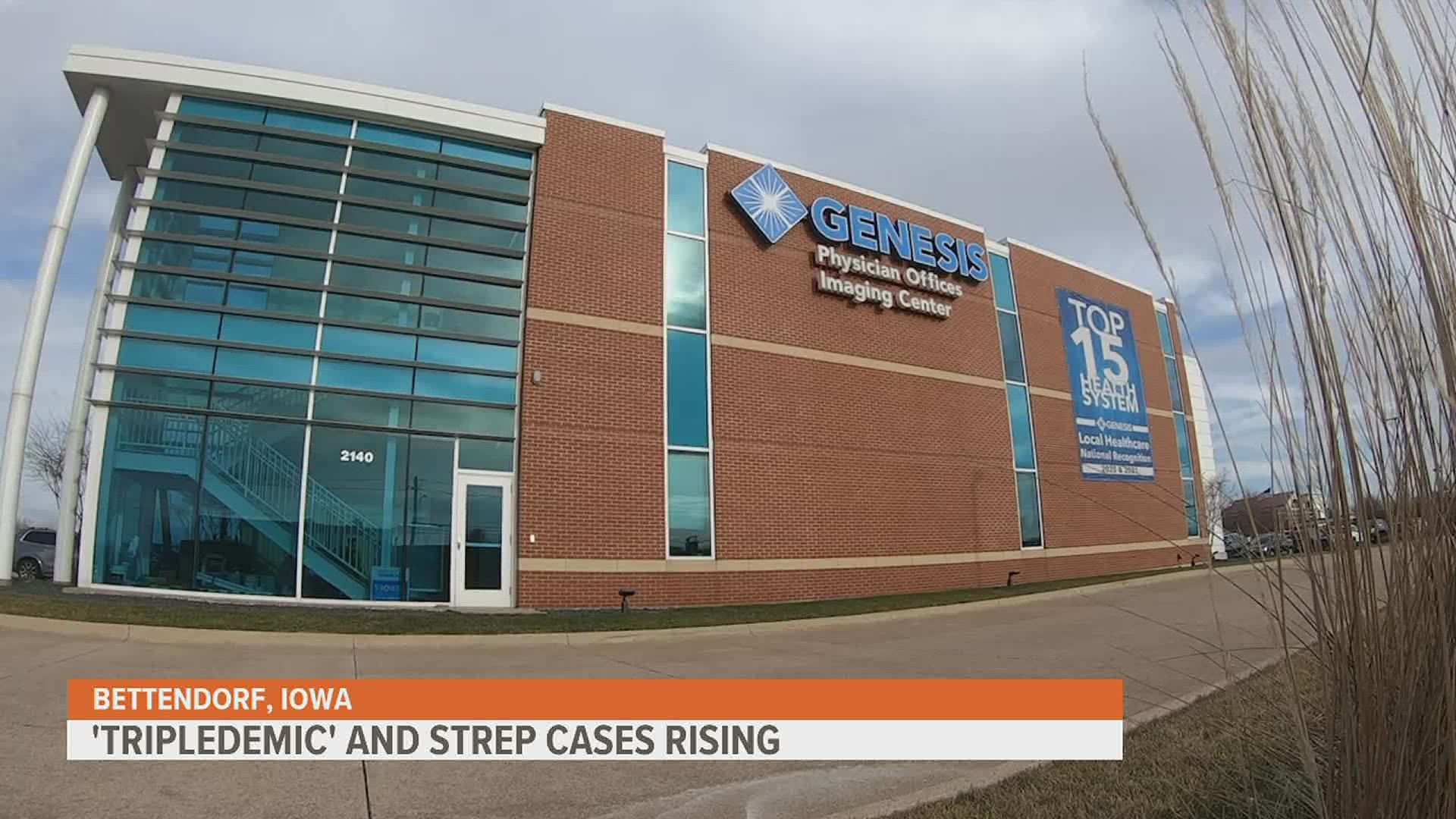IOWA, USA — Hospitals across the U.S. are still struggling with the so-called 'Tripledemic' - an early rise of COVID, RSV and the flu in young patients.
Now hospitals are worried about strep B or strep throat.
"We're seeing everything - the trend is just up," Dr. David Kavanaugh from MercyOne Clinton said.
"There is definitely I would say, a 10% increase in the number of cases of strep that we are seeing this year," Dr. Deepna Kukreja from Genesis Health in Bettendorf said.
Local doctors said an increase of social interactions similar to pre-pandemic patterns is the main cause.
Dr. Kukreja explained that RSV and flu cases were lower during the COVID-19 pandemic due to social distancing and masks.
"We are definitely seeing it much earlier this year, I would say because as soon as schools went back in session, we saw a huge surge of infections," Dr. Kukreja said.
Not only that, but hospitals are seeing some patients with two of the diseases at the same time.
"With the coexisting viral infections that we are seeing, there's a lot of kids with strep and flu at the same time. So we have given it a new fancy term called 'strepfluenza," Dr. Kukreja said.
Dr. Kavanaugh said his hospital has seen other combinations as well, such as RSV and COVID.
Doctors are also seeing the infections in other age groups.
"Now we're seeing RSV in adults, and especially adults that have preexisting lung problems. If you have asthma, you have COPD, and you pick up RSV - that gives you a pretty bad result," Dr. Kavanaugh said.
With families coming together soon for the holidays, both doctors offer the usual advice for helping to prevent the spread of these diseases.
"The standard things that we always tell people, wash your hands and make sure that you get your regular immunizations," Dr. Kavanaugh said.
"Make sure you wash your hands for 20 seconds or use an alcohol-based hand sanitizer and frequently wipe your surfaces," Dr. Kukreja suggested. "If there is a sick family member try to stay away. If you have to be someplace and you are not feeling well, wear a mask."
Both doctors are hopeful that the spread of infection is nearing its 'peak' and said at least the spread should decrease in the late winter and early spring.

